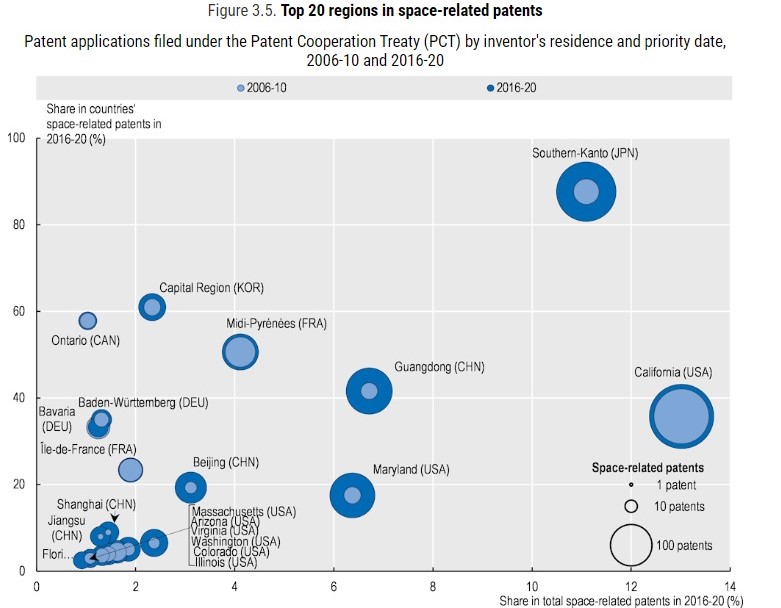
Space Economy in Figures. Responding to Global Challenges
The Organization for Economic Cooperation and Development (OECD) presented a new working paper on the development of the space industry.
In 2022, government funding for space programs in OECD countries reached US$75 billion, representing 0.1% of OECD GDP. Since 1957, 100 countries have been able to send a satellite into orbit, 23 countries have national launch vehicle projects, and 11 countries are developing spaceports to meet national needs and attract commercial missions.
Experts note significant growth in private space companies. By the end of 2022, there were approximately 6,700 operational satellites in orbit, of which more than 70% belonged to commercial operators. Reducing the cost of organizing a flight thanks to reusable launch technologies is a key factor in the development of private space exploration.
One of the key problems of the space industry is the accumulation of debris in Earth's orbits. There are currently about 25,000 identifiable and trackable debris objects in orbit, but the total number of untraceable objects is in the hundreds of millions. In the worst case, the density of debris could reach a level at which some orbits would become unusable. Solving the space debris problem will require concerted action by the public and private sectors at the national and international levels, and the development of new energy-efficient and environmentally friendly technologies.



